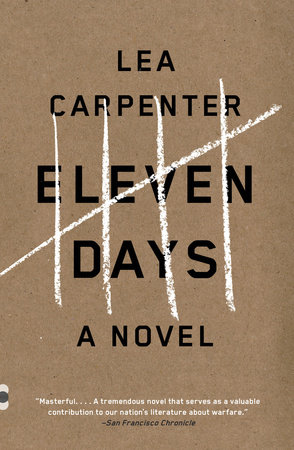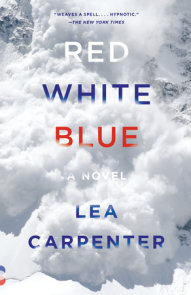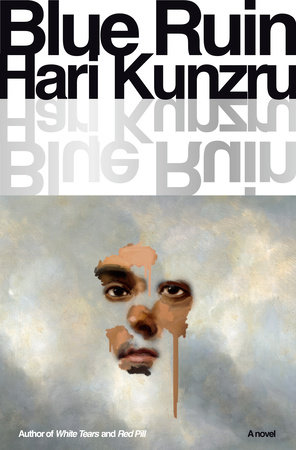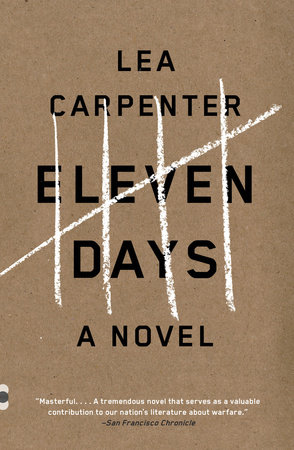

Eleven Days
By Lea Carpenter
By Lea Carpenter
By Lea Carpenter
By Lea Carpenter
Part of Vintage Contemporaries
Part of Vintage Contemporaries
Category: Literary Fiction
Category: Literary Fiction

-
$15.95
Mar 11, 2014 | ISBN 9780307951038
-
Jun 18, 2013 | ISBN 9780307960719
YOU MAY ALSO LIKE
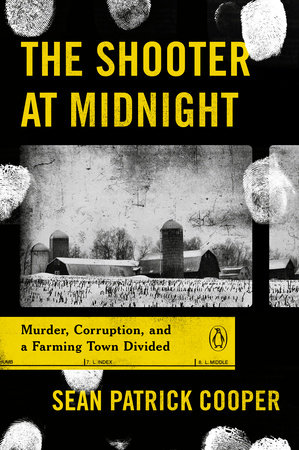
The Shooter at Midnight
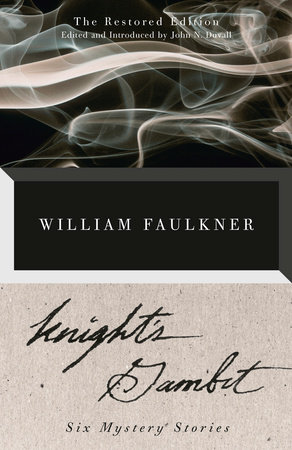
Knight’s Gambit
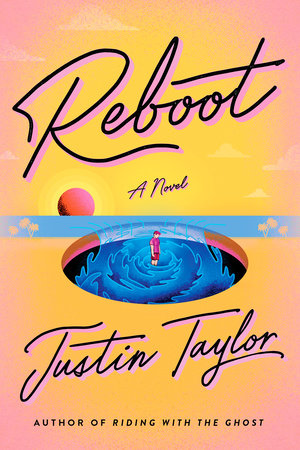
Reboot
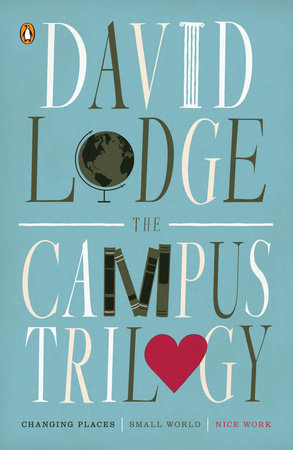
The Campus Trilogy
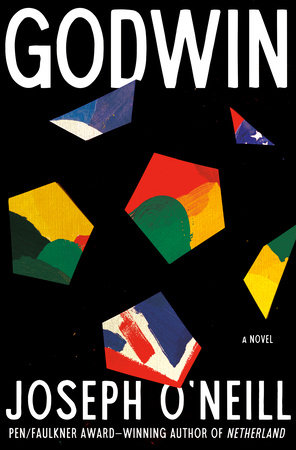
Godwin
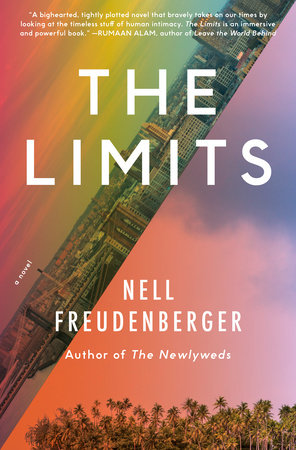
The Limits
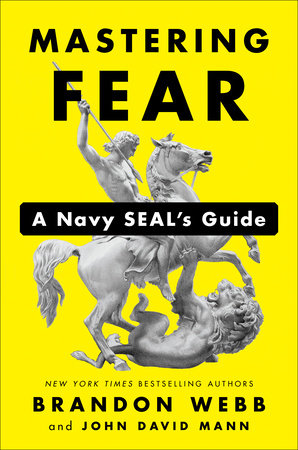
Mastering Fear
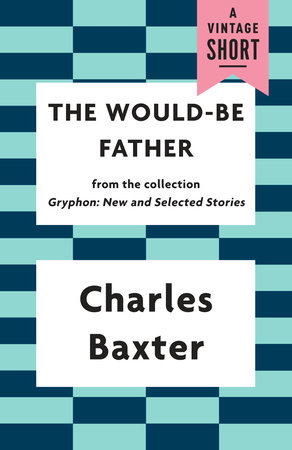
The Would-be Father
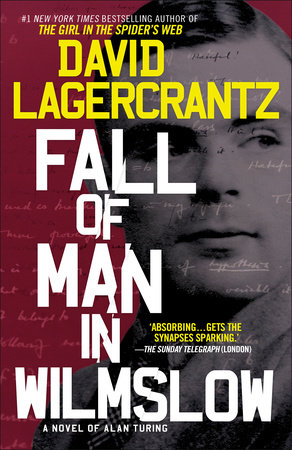
Fall of Man in Wilmslow
Praise
Praise for Lea Carpenter’s Eleven Days
“Masterful. . . . Lea Carpenter’s debut novel, Eleven Days, tells a story that is at once timeless and also grounded in the very real vicissitudes brought about by current events. . . . She has written a tremendous novel that serves as a valuable contribution to our nation’s literature about warfare.”
—San Francisco Chronicle
“A deeply affecting story about a mother and a son that attests to the debut of an extraordinarily gifted writer. . . . Ms. Carpenter has written a novel that maps—much the way that Jayne Anne Phillips’s classic Machine Dreams and Bobbie Ann Mason’s In Country did—the fallout that war has not just on soldiers, who put their lives on the line, but also on their families, who wait anxiously back home.”
—The New York Times
“In simple but stirring prose . . . an elegant meditation on the love between a mother and son whose worldviews changed forever after 9/11, in very different ways.”
—Entertainment Weekly
“A novel of stillness and reflection. . . . Carpenter’s greatest accomplishment here may be her success at creating an Olympian warrior who seems entirely human, modest and decent. . . . Carpenter’s intelligence and sincerity find powerful expression in the novel’s sophisticated structure. . . . This story reminds us that each of these warriors, no matter how brave and tough and deadly, is still some woman’s beloved son.”
—The Washington Post
“Carpenter provides a convincing portrait of an exclusive and exclusively male military subculture.”
—The New York Times Book Review
“Assured debut. . . . [An] affecting portrayal of maternal love at a time of war.” —Vogue
“Carpenter’s incisive, graceful novel is certain to vault to the top of any list of high quality literature about the wars in Iraq and Afghanistan.”
—The Daily Beast
“A compelling story made memorable by the strength of its elegant prose.”
—Toni Morrison, author of Home
“The finest analysis of special operations I have ever read.”
—Ambassador Frank G. Wisner
“Eleven Days is a powerful, moving read: Jason and his Argonauts reborn as Navy Seals. But it is far more than just a compelling story; it’s a window onto the new world of 21st century warfare.”
—Anne-Marie Slaughter, author of Keeping Faith with our Values in a Dangerous World
“What Denis Johnson did for the Vietnam War in Tree of Smoke, Lea Carpenter does for Iraq and Afghanistan in her superb Eleven Days. She drills deeply into the culture and lore of special operations warfare, and just as deeply into the minds of the people—the military-intellectual complex, if you will—who ultimately determine the American way of making war. But at the core of this extraordinary novel is the love of a mother for her child. That’s the story of us all, and that’s the story that may well break your heart.”
—Ben Fountain, author of Billy Lynn’s Long Halftime Walk
“An extraordinary accomplishment. Written with an elegant precision, this book is at its core a story about love: between a mother and a son, a son and a father, and a special group of men for each other and the imperfect country they choose to serve.”
—Kevin Powers, author of The Yellow Birds
“A beautiful, and original, work of art. Eleven Days manages to be both a meditation on courage and a gripping read. Scholarly and stylish, displaying a capacious mind and even greater heart. A magnificent debut.”
—Alexandra Styron, author of Reading My Father
“Not only a dramatic, affecting and wholly original story about war from a woman’s point of view but an incisive look at the experience of special operations.”
—Doug Stanton, author of In Harm’s Way and Horse Soldiers
“Powerful, moving and beautifully written, this story of a mother and her son shows us how 9/11 has changed our lives forever.”
—Bob Kerrey, author of When I Was a Young Man
“Filled with characters who exist on the edge of emotion. . . . Poignant prose and an impeccably structured narrative.”
—Publishers Weekly
“Assured. . . . A highly moral anti-war novel without noisily announcing itself as such. . . . This well-turned story packs plenty of emotion. . . . Among the smartest of the batch of recent American war novels.”
—Kirkus Reviews
21 Books You’ve Been Meaning to Read
Just for joining you’ll get personalized recommendations on your dashboard daily and features only for members.
Find Out More Join Now Sign In






